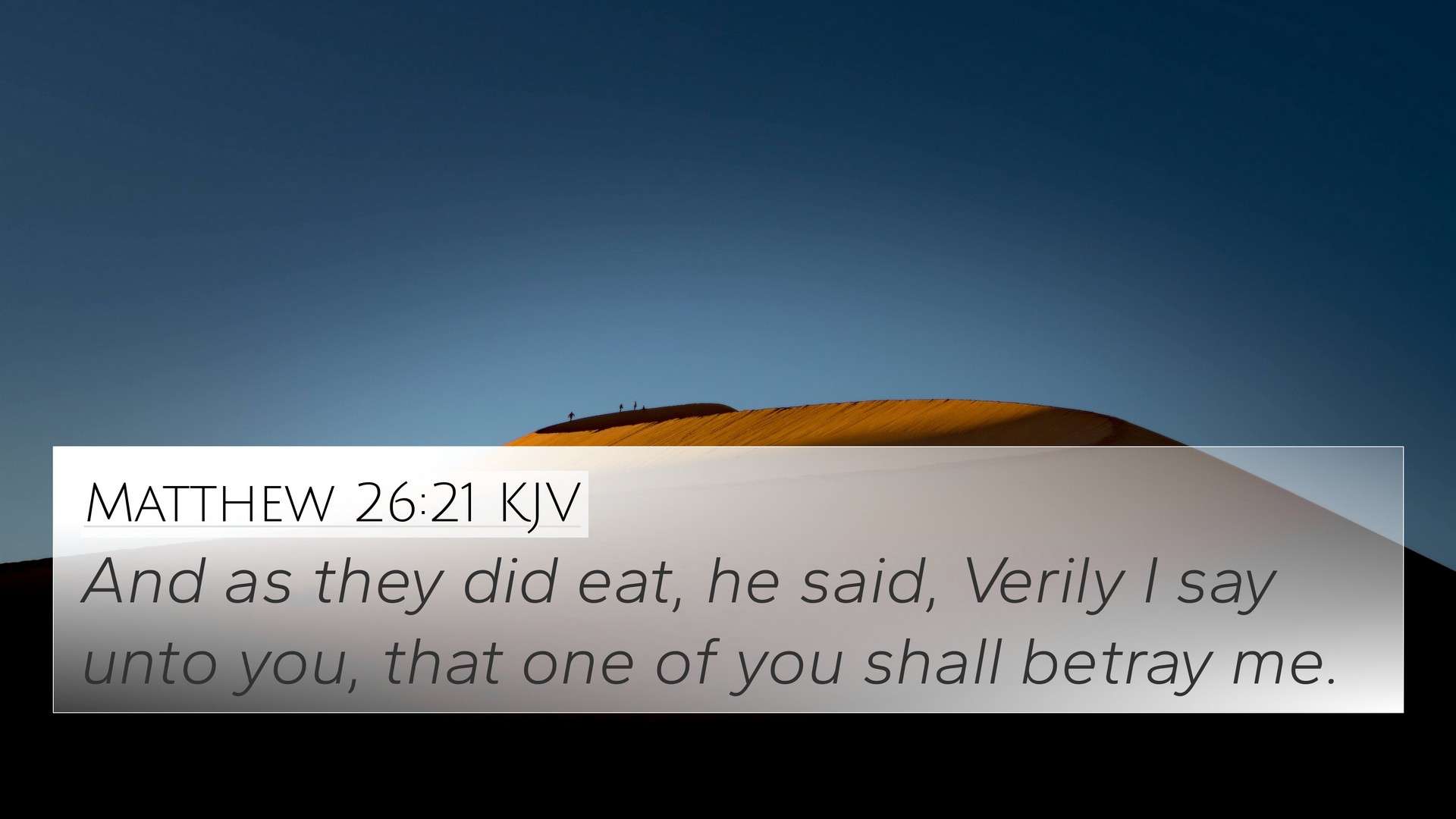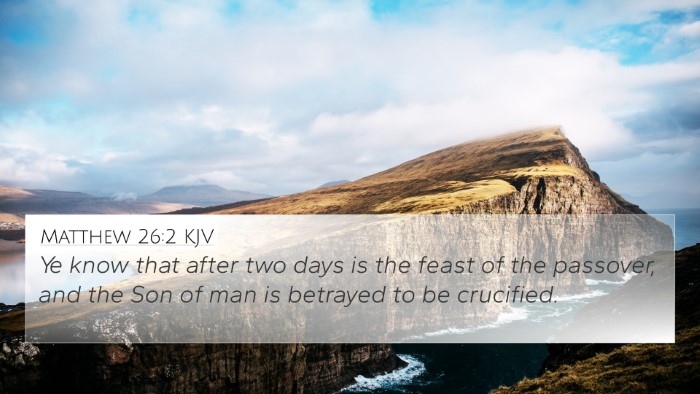Understanding Matthew 26:21
Matthew 26:21 captures a pivotal moment during the Last Supper, where Jesus reveals the impending betrayal among His own disciples. This verse states:
"And as they did eat, he said, Verily I say unto you, that one of you shall betray me."
This profound declaration not only highlights the intimacy of the setting, shared among close friends, but also the shock and weight of betrayal that is soon to unfold.
Verse Meaning and Insights
The meanings derived from this verse benefit from a multi-faceted approach, drawing insights from notable public domain commentaries.
Commentary Insights:
- Matthew Henry:
Henry emphasizes the gravity of betrayal and the prescience of Christ. Jesus’ choice of words, "one of you," indicates that the treachery would come from those He had nurtured and loved. This underlines the notion that betrayal can come from the most unexpected sources, especially from those closest to us.
- Albert Barnes:
Barnes highlights that this prophecy about betrayal was crucial for understanding the fulfillment of scripture. The act of one of His own forsaking Him serves to fulfill the words of Psalms and the prophetic announcements regarding the Messiah and His trials. This invites a larger reflection on Old Testament prophecies that foreshadowed these New Testament events.
- Adam Clarke:
Clarke discusses the emotional impact of this revelation on the disciples, who were likely filled with disbelief and concern. The intimate act of sharing a meal only heightens the horror of the betrayal Jesus predicts. Clarke also remarks on the spiritual implications of such a betrayal and its reflection on human nature.
Connections and Cross-References:
Matthew 26:21 resonates with several cross-references across scripture that delve into themes of betrayal, prophecy, and the Last Supper. Notable connections include:
- Psalm 41:9: "Yea, mine own familiar friend, in whom I trusted, which did eat of my bread, hath lifted up his heel against me."
- Isaiah 53:3: "He is despised and rejected of men; a man of sorrows, and acquainted with grief."
- John 13:18: "I speak not of you all: I know whom I have chosen: but that the scripture may be fulfilled, He that eateth bread with me hath lifted up his heel against me."
- Matthew 26:46: "Rise, let us be going: behold, he is at hand that doth betray me."
- Mark 14:18: "And as they sat and did eat, Jesus said, Verily I say unto you, One of you which eateth with me shall betray me."
- Luke 22:21: "But, behold, the hand of him that betrayeth me is with me on the table."
- Acts 1:16: "Men and brethren, this scripture must needs have been fulfilled, which the Holy Ghost by the mouth of David spake before concerning Judas, which was guide to them that took Jesus."
Exploration of Themes
This verse is rich with themes that underline key theological concepts:
- Betrayal: The emotional and spiritual dimensions of betrayal are explored not just in Matthew, but also through the lens of Old Testament prophecies.
- Prophecy and Fulfillment: The fulfillment of ancient prophecies underscores the divine knowledge and purpose permeating the narratives of both Testaments.
- Companionship and Trust: The stark contrast between intimacy and treachery is a frequent reminder of the complexities in human relationships.
The Importance of Cross-Referencing
Using Bible cross-references is crucial for deeper understanding:
- Provides context by illustrating how themes are threaded throughout the Bible.
- Helps identify the layers of meaning in scriptural texts.
- Encourages comparative analysis of scripture, allowing for an enriched theological study.
Tools such as a Bible concordance or a cross-reference Bible study guide can assist in uncovering these connections effectively.
Conclusion
Matthew 26:21 serves as a profound reminder of the betrayal of Jesus, inviting us to reflect on the implications of trust and disloyalty within our own lives. The exploration of cross-references enriches our understanding, linking the sorrowful moment of betrayal with scriptural prophecies, enhancing both personal and communal study of the Bible.










